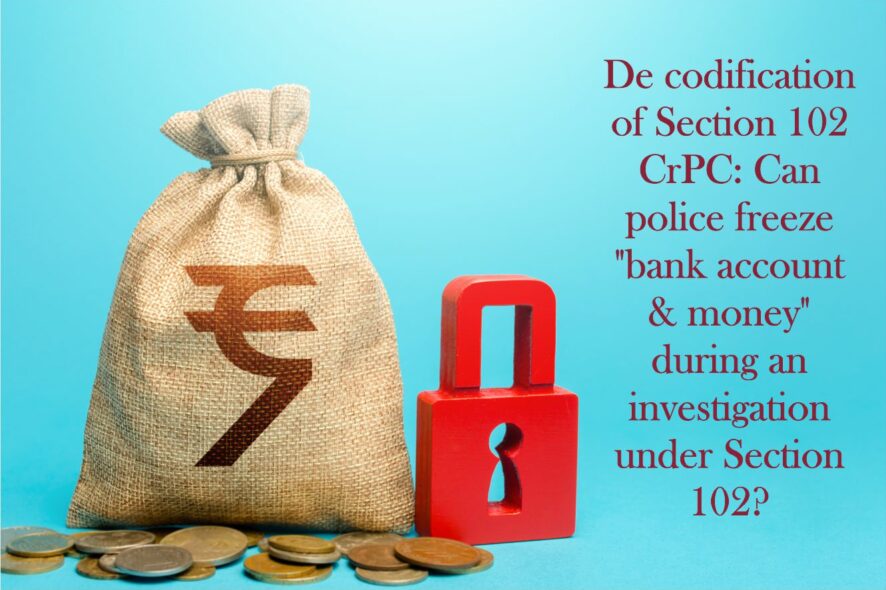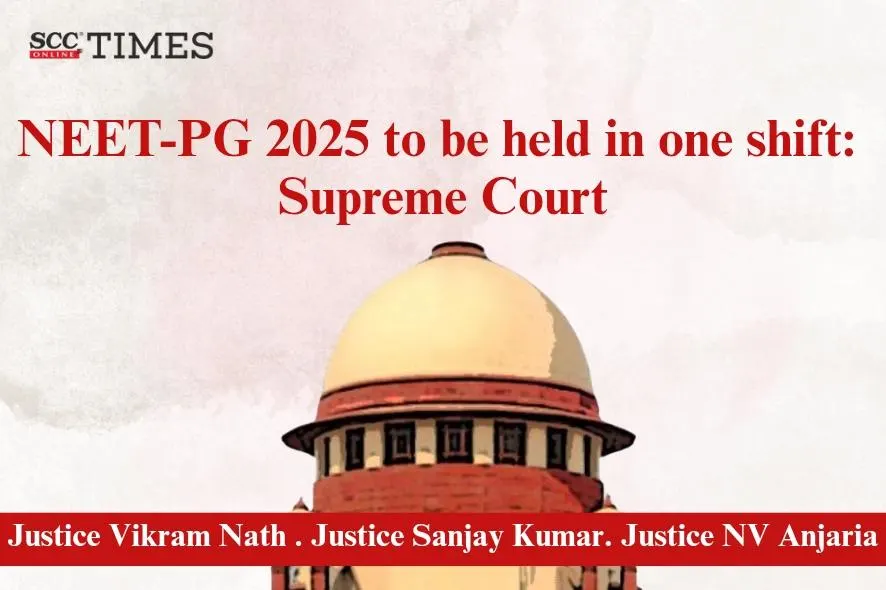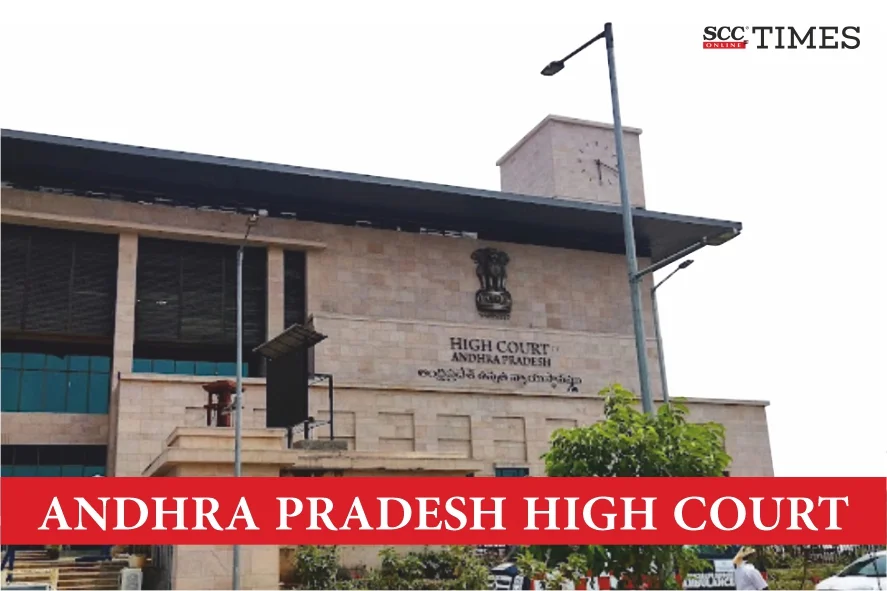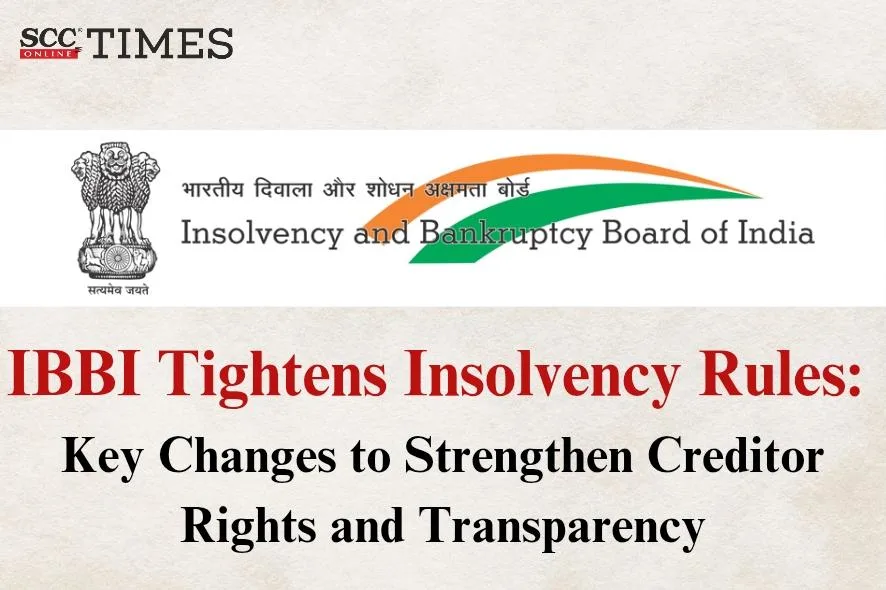A perusal of Section 102 of Criminal Procedure Code, 1973[1] expounds about the powers inherited by the police authorities to seize certain property. Section 102(1) provides power to any police officer irrespective of his rank to seize any property which forms a suspicion for commission of an offence. The seizure power of police is discretionary in nature as the word “may” is preferred by the legislature instead of “shall”. Section 102(2) obligates the investigating officer to report the seizure of property to the officer-in-charge of the police station, if the investigating officer is subordinate to the officer-in-charge. The term “any offence” and “any property” opens the wide gates for the police officer to seize any property under the suspicious circumstances under any statute. Therefore, Section 102(3) balances the power of police authorities to seize any property irrespective of the nature of the offence i.e. cognizable or non-cognizable because the investigating officer is obligated to report to the Magistrate about the seizure of the property and if the property cannot be furnished to the court then the police authorities shall give that property to any person who promises to execute a bond for providing the property before the court as and when the Magistrate directs.
The two mandatory conditions for the applicability of Section 102 CrPC were discussed by the Supreme Court in State of Maharashtra v. Tapas D. Neogy[2] wherein the Court observed the conditions as: (a) there must be a “property”; and (b) in respect of that “specific property” there must be a suspicion of commission of any offence.
The kinds of property which can be seized by the police under Section 102 was examined by the Supreme Court in M.T. Enrica Lexie v. Doramma[3] (Italian marines case) wherein the Court interpreted the following conditions to be construed as a property i.e. (a) property which is stolen or suspected to be stolen; and (b) the property directly linked to crime. Any property which is not under the suspicion of commission of offence and which is being investigated by the police authorities cannot be seized by police under the ambit of Section 102.
Seizure of a property and impounding of a property are two distinct categories which is elaborately discussed by the Supreme Court in Suresh Nanda v. CBI[4] wherein the Court held that a seizure of a property is something which must be made on a specific moment when the person/authority obtains the possession of the property who was earlier not in possession of the property whereas the impounding of property or document takes place when the property is retained for a certain time. Therefore, the police authorities have power to seize a property under the ambit of Section 102 but they do not have the power to retain or impound that property.
Since there are two sides of the same coin similarly there are two facets on the aspect of the seizure power of the police authorities to seize bank account under the ambit of Section 102.
Seizure of bank account/money held as legal
The first facet deals on the issue of bank account being “seized” by the police under Section 102 CrPC held valid. In Bhimji Ramji Gujrathi v. Emperor[5], the police caught the convicts with money in their possession based on information received on the engagement of illegal trade, thereafter police acted under Section 550 of old CrPC (equivalent Section 102) and seized money which was in possession of the convicts. The Court held in favour of the police and held the seizure of money valid.
In Krishnan Sukumaran v. Enforcement Officer[6], the police authorities had seized a bag containing 789 currency notes of Rs 100, the Division Bench of the Karnataka High Court after interpreting Section 550 of old CrPC held that the seizure of the currency notes was completely lawful. In Gurcharan Singh v. State of Punjab[7], the police obtained two prohibitory orders to seize the bank accounts of accused under Section 102 as the accused was suspected of amassing wealth disproportionate to his known sources and prosecuted the accused under Section 5(1)(2) of the Prevention of Corruption Act, 1947[8]. The petitioner sought quashing of these two prohibitory orders but the Division Bench of the Punjab and Haryana High Court after interpreting the term “property” opined that the term is comprehensive in nature which signifies subject-matter in which rights or interest exist or it may signify valuable rights and interests protected by law or both and in a strict legal sense and it means rights over physical object and not the physical object and it can be applied with Section 102 especially in cases which are related to the bank account operated by the accused. The Bench noted that if the accounts are left preserved then nothing will remain for confiscation.
The Madras High Court in Bharath Overseas Bank v. Minu Publication[9] and Bharat Overseas Bank Ltd. v. Prema Ramalingam[10] had specifically held that the “money” in the bank account can be seized through prohibitory order under Section 102 which prohibits the holder of the account from operating the bank account.
Further, in P.K. Parmar v. Union of India[11], the accused had opened up fictitious accounts and forged the signatures of his wife and children for opening up of numerous bank accounts, therefore Central Bureau of Investigation (CBI) under suspicion charged the accused with Sections 420, 467, 468 and 471 read with Section 120-B IPC[12] and froze all the accounts of the accused under Section 102. The Delhi High Court justified the action of CBI as the accused had opened up the fictitious bank accounts which led to the suspicion of forgery.
The Supreme Court in State of Maharashtra v. Tapas D. Neogy[13] held that the police authorities are vested with enough powers to seize the bank account of the accused person during the course of their investigation under Section 102 because the bank accounts are covered under the term “property” as defined under Section 102 CrPC. This view was reiterated by the Division Bench of the Bombay High Court in Bombay Science and Research Education Institute v. State of Maharashtra[14]. Similarly, the Full Bench of the Bombay High Court in Vinodkumar Ramachandran Valluvar v. State of Maharashtra[15] held that Section 102 does not require issuance of notice to an account-holder before or simultaneously for attaching their bank account.
Few significant contentions raised by the accused in Adarsh Coop. Housing Society Ltd. v. Union of India[16] pertained to the restriction imposed on the accused to opt for the appropriate legal representation after the accused cooperative society bank account were sealed by CBI and that action violated Articles 14 and 21. Second contention related to the non-mention of the name of the accused society in FIR. The Division Bench of the Bombay High Court rejected these contentions of the petitioner and interpreted Hussainara Khatoon v. State of Bihar[17] to hold that the accused is entitled for a right to legal representation and not vested with a right to choose their favourite legal representation if they do not possess funds. Further, the Bench opined that Section 102 empowers the police to attach the accounts of not only the accused but of anyone who creates a suspicion for commission of an offence.
The Supreme Court in Teesta Atul Setalvad v. State of Gujarat[18] reiterated the view of the Supreme Court in Tapas D. Neogy[19] and the view of the Division Bench of the Bombay High Court in Adarsh Coop. Housing Society Ltd.[20] and held that the bank account is a “property” under the ambit of Section 102 and the account of the accused or anyone in relation to them can be seized and prohibit the operation of the said account by the police authorities when there is a suspicion or direct link with the commission of offence. In regard to the procedure for issuing instruction for freezing of bank account, a notice is to be sent to the Magistrate and there is nothing in Section 102 which mandates the police to provide a prior notice to the accused/account-holder. The application for de-freezing of account will be of no relevance when the investigation is not complete and the police has not filed its final report. Once the investigation is complete, the application for de-freezing of account can be made to the appropriate authority.
Seizure of bank account/money held as illegal
The second facet of the same coin deals with the issue where the bank account was not treated as “property” under Section 102 and the court had allowed the application for de-freezing of the bank account of the accused. The Division Bench of the Delhi High Court in Swaran Sabharwal v. Commr. of Police[21] had quashed the prohibitory order for the seizure of the bank account of the accused person’s wife because initially the police failed to mention the charges under which the wife of the accused person was booked and further her relationship with the accused was wrongly stated in the final report. The Court was ambivalent and held that the money kept in the bank account of the wife of the accused cannot be seized and if there is a transfer of funds between the two bank accounts i.e. of accused and his wife, then it can be brought forward through the bank statements. The Court after interpreting Section 102 held that the discovery of property leading to the suspicion of commission of an offence can be seized by police and the property seized as a sequel to the commission of the offence is invalid. The Court also allowed the innovative submission pertaining to the payment of interest at 18% p.a. to the wife, if the seizure of bank account is uplifted by the court.
In Textile Traders Syndicate Ltd. v. State of U.P.[22], the Allahabad High Court had quashed two orders passed by the Sub-Divisional Magistrate and the District Magistrate for freezing of the bank accounts of the accused on the ground that the District Magistrate cannot issue an order for freezing of bank accounts when the account is not seized by police in the first instance.
The Gauhati High Court in Purbanchal Road Service v. State[23] held that the term “seize” under Section 102 means actual taking possession of the property and restraining bank account and locker of the accused by the police would not amount to seizure under Section 102. The Court quashed the order passed by the Special Judge and CBI but allowed the police to confiscate the articles which were deposited by the accused in the bank account on the condition that those articles were found under circumstances which created suspicion for the commission of the offence. The view of Textile Traders Syndicate Ltd.[24] and Purbanchal Road Service[25] was reiterated by the Karnataka High Court in Malnad Construction Co. v. State of Karnataka[26]. Similarly, the bank accounts of the Mutt cannot be paralysed by a seizure of bank accounts by police under Section 102 and continuation of the seizure of the bank account after the completion of the investigation by police is unwarranted as held by the Supreme Court in Jayendra Saraswathy Swamigal (2) v. State of T.N.[27].
Conclusion
The provision of Section 102 has a wide compass and is not limited to recoveries during the search alone, nor is it restricted minutely to the cases in regard to cognizable offenses. The bank accounts like any other property is freezable as freezing the account is an act of investigation and this act surely commands and behooves secrecy to preserve the evidence and it does not deprive any person of his liberty. The bank account must be protected from dissemination, depletion or destruction by any mode and it would be absurd if the accused is allowed to operate his bank account or to close or to withdraw or transferred the money from the same bank account which is suspected of having been used for the commission of the offence.
For meeting the ends of justice, the discharging of such powers by police on suspicion is necessary. The seizure of bank account/money by police under Section 102 must be backed by suspicion and necessary evidence pointing towards the suspicion during the pendency of investigation. Similarly, if the Court finds that the freezing of bank account was made on false suspicion and the accused is innocent then the Court may grant a compensation from the police to accused person as held in Swaran Sabharwal[28].
†Advocate at the Chambers of Mr Atmaram N.S. Nadkarni (Senior Advocate, former ASG) and was earlier associated with the Chambers of Mr Soli J. Sorabjee (Senior Advocate, former Attorney General for India).
†† Advocate, Delhi High Court
[1] <http://www.scconline.com/DocumentLink/V9hLBt0X>.
[8] <http://www.scconline.com/DocumentLink/B5K2904b>.
[12] <http://www.scconline.com/DocumentLink/wNz74jV9>.












Excellent write up cover all issues on 102 of Cr.Pc. The citations of case laws are also very useful. Thanks for your good effort.
Mayavan Gopinath,
Advocate.
This article provides very good information